Worst to Best: The 2023 Oscar Shorts Nominees
Win your Oscar party (or maybe catch some good movies) with this comprehensive guide to this year's live-action, animated, and documentary short contenders.
You’re all good cinephiles here. You’ve seen the most acclaimed films of the year and issued a ballot on them. You’ve followed all the critics and guild awards and perhaps, in your darkest moments, visited the blogs of various deranged Oscar prognosticators. With all this special knowledge, you stand ready to triumph in the office pool on Oscar night, like the time I won the DVD of the original Traffik miniseries at Tasha Robinson’s annual party. But then the ballot is in your hands and your heart sinks: You forgot about the goddamned shorts. Now you’re the kid taking the SATs again, looking for answers that sound right or randomly bubbling in “C” on the Scantron sheet.
I’m here to save you from this nightmare scenario, Revealers. I have watched all 15 shorts nominated in the Live Action, Animation and Documentary categories and have ranked them below. I’ve even ordered the categories from weakest to strongest slates. Ultimately, the whole point of watching these shorts is to catch some good movies, so that’s the main focus of this piece. But if you’re looking for a little Oscar Night cheat sheet, I offer up some predictions at the very bottom. And if you end up getting it wrong anyway, take solace in the knowledge that I’ll be losing right along with you.
All three of these shorts packages are currently touring theaters via ShortsTV.
Best Live Action Short Film
5. “An Irish Goodbye” (dir. Tom Berkeley, Ross White. 23 min.)
The classic pitfall of a narrative short: Don’t try to squeeze a feature film into 20 minutes. This cloying tale of grief and brotherly love is like a Rain Man that never leaves the driveway. After their mother’s death, two estranged brothers spend time together on the family farm in Ireland. Turlough (Seamus O’Hara) is a relative slickster who lives in London. Lorcan (James Martin) has Down Syndrome and can no longer rely on his mother’s care, which means Turlough has to make some tough decisions for him. In the meantime, they find their mother’s extensive “bucket list” and decide to carry it out themselves, from learning Tai Chi to modeling for a “life-drawing class” to going on a hot air balloon ride—which, in their limited circumstances, means attaching the urn to an assortment of balloons. They do some fighting over Lorcan’s future, but “An Irish Goodbye” takes the easiest possible route out of that predicament. Not that it would be good at any length, but at this one, it earns nothing.
4. “Ivalu” (dir. Anders Walter, 16 min.)
Based on a Danish graphic novel by Morten Dürr and Lars Horneman, “Ivalu” leads to an even more unearned revelation than “An Irish Goodbye,” but it at least has a more vivid sense of place and a modicum of cinematic brio. Set in a modest seaside settlement in Iceland, the film follows Pipiluk (Mile Heilmann Kreutzmann), a sensitive teenager searching for her beloved older sister over their father’s cruel, mysterious indifference. Pipiluk’s quest is underlined by a lot of internal monologue and spiritual happenings, including a crow that offers some gorgeous bird’s-eye views of the landscape. But once “Ivalu” arrives at the real reason Pipiluk’s sister took off, it’s heavier than this little film can handle.
3. “Night Ride” (dir. Eirik Tveiten, 14 min.)
The premise for this Norwegian short has some strong comedic possibilities: On a cold and snowy winter night, Ebba (Sigrid Husjord) waits patiently for a tram.But when the driver arrives and goes on break without at least letting her warm up inside, she decides to commandeer the tram for herself. Having Ebba randomly mash the control buttons and pick up confused passengers recalls that Seinfeld episode where Kramer talks about driving a city bus while fending off an attacker. But “Night Ride” turns disappointingly earnest when a trans passenger is harassed on the ride and Ebba, a little person, decides to take a stand on her behalf. The tram-run-by-an-amateur angle is vastly preferable to the harassed-misfits-bonding angle.
2. “The Red Suitcase” (dir. Cyrus Neshvad, 18 min.)
Late night at the Luxembourg airport, a veiled 16-year-old Iranian girl named Ariane (Nawelle Ewad) is the last person to collect her suitcase at baggage claim and she’s in no hurry to leave. As it happens, her father has arranged a marriage with a much older gentleman and her husband-to-be is waiting for her impatiently. Ariane takes courageous steps toward self-determination, but “The Red Suitcase” focuses on this small window of freedom between her life in Iran and her fate in Europe, when she has the space to imagine something different for herself. It’s a lovely piece of filmmaking, simple yet atmospheric, with a mostly emptied-out airport serving as a blank, modern slate of possibilities.
1. “Le Pupille” (dir. Alice Rohrwacher, 37 min.)
The longest of the shorts happens to be the best, with the gifted Italian director Rohrwacher (The Wonders, Happy as Lazarro) adding a dash of magical realism to a perfectly proportioned glimpse at an all-girls Catholic boarding school over Christmas during World War II. As a strict head nun (played by the director’s sister, Alba) minds their souls—they get their mouths washed out with soap just for dancing to a pop song on the radio—these adorable little moppets have their eyes on a beautiful red custard cake offered by a woman who wants them to pray for her unfaithful boyfriend. The nun sees it as the ultimate test of moral fortitude: Are they willing to sacrifice a slice for Jesus? The poor orphans just want something sweet on Christmas Day. This clash of will plays out with rascally humor and a fine sense of place, enhanced by Rohrwacher’s mix of Super 16mm and 35mm film stock.
Best Documentary Short Film
5. “Stranger at the Gate” (dir. Joshua Seftel, 29 min.)
There’s no topping the funniest criticism of this misguided doc I encountered, via the most-liked review on Letterboxd: “sooo cuuuute!!! he almost killed 200 people but he learned that it was wrong!!!!” I wouldn’t be quite so glib about it, but “Stranger at the Gate” puts far too much emphasis how much the kindness of Muncie, Indiana’s Muslim community mattered in preventing “Mac” McKinney, a former U.S. Marine, from following through on a plot to bomb the local Islamic Center. The real story here, one that Seftel doesn’t emphasize enough, is McKinney’s dehumanizing tours in Afghanistan, where he was taught to see Muslims as target practice and came home with PTSD, furious that “the enemy” was taking up space in his hometown. This film needed far more time to interrogate military culture and McKinney’s eventual conversion to Islam, because the unintended message here is that it’s on Muslims to be humble and docile if they wish to be safe in America.
4. “How Do You Measure a Year?” (dir. Jay Rosenblatt, 29 min.)
Ever wonder what it would be like if Michael Apted’s Up series was only about one person, was half an hour long, and totally sucked? Then “How Do You Measure a Year?” is the movie for you! On every birthday from age two to eighteen, Rosenblatt would sit his daughter down for an interview and ask her the same set of questions. Some of the questions are, well, questionable: How is a kid at any age supposed to answer, “What does the word ‘power’ mean to you?” But this assembly feels like one of those home movies that a parent might treasure and guests would only tolerate. The adorable girl grows up to be an intelligent and emphatic being, so congrats to Rosenblatt on that. As a father of two girls myself, that’s the project I’m most interested in getting right.
3. “The Martha Mitchell Effect” (dir. Anne Alvergue, Debra McClutchy, 40 min.)
The title refers to a phenomenon in which a person’s accurate understanding of real events is misdiagnosed as delusional. For the late Martha Mitchell, the outspoken wife of John Mitchell, who served as Richard Nixon’s attorney general and campaign manager, the supposed delusion was the president’s knowledge of the Watergate break-in. For those unfamiliar with Mitchell’s story, this archival documentary is a compact piece of history, following her trajectory as a frank, popular D.C. outsider to a total pariah when she realized that she was part of a dirty campaign and didn’t want to stay silent about it. The absence of talking heads is refreshing—we hear different voices, but laid over the relevant footage—but “The Martha Mitchell Effect” doesn’t try for much more than hailing the steadfastness of a tough, principled woman and decrying a system that makes martyrs out of whistleblowers.
2. “The Elephant Whisperers” (dir. Kartiki Gonsalves, 41 min.)
In the Mudumalai Tiger Reserve in South India, an indigenous couple cares for a baby elephant named Raghu, which they found orphaned and badly injured but raised as if it was their own child. Crying yet? You probably will at some point in Gonsalves’ tender documentary, which earns its tears while detailing the day-to-day tasks of feeding, playing and rehabilitating this beautiful animal with the hope of returning it to the wild. “The Elephant Whisperers” is a little guilty of anthropomorphizing Raghu and another baby elephant the couple adopts, but its vision of humans and animals forging an unconventional family is hard to resist. Yank away at those heartstrings, Kartiki!
1. “Haulout” (dir. Maxim Arbugaev, Evgenia Arbugaeva, 25 min.)
Watch any nature documentary made in the last 20 years and you will inevitably get a passage—or a longer stretch—on the effects of climate change on animal populations. The extraordinary “Haulout” offers that lesson as directly and devastatingly as any nonfiction film I’ve seen. On the Siberian Arctic shore, a Russian marine biologist, Maxim Chakliev, awaits the annual mass migration of walruses and they arrive quite literally at his beachside doorstep, in the tens of thousands. “Haulout” observes this event with quiet awe, but as Chakliev slowly dictates his thoughts into a recorder, it becomes clear that the melting of ocean ice, which the walruses need for rest, has a cascading effect that’s potentially destructive on a mass scale. Beautiful and heartbreaking.
Best Animated Short Film
5. “The Flying Sailor” (dir. Amanda Forbis, Wendy Tilby, 8 min.)
The Halifax Explosion of 1917, caused by the collision between a Norwegian vessel and a French cargo ship loaded with explosives, resulted in the deaths of 1,782 people, the injury of thousands more, and a leveling of the Portside. This Sundance-winning experimental bauble takes inspiration from this event by imagining a sailor’s brush with death, as the explosion sends him flying naked through the air while his life flashes before his eyes. Mercifully, the hectic montage of flashbacks renders his past more expressively than a more conventional short might, but the conceit nonetheless feels rooted in a cliché.
4. “The Boy, the Mole, the Fox and the Horse” (dir. Peter Baynton, Charlie Mackesy, 34 min.)
This is the Goliath of the category. Based on Charlie Mackesy’s 2019 picture book, “The Boy, the Mole, the Fox and the Horse” was produced for Apple TV+ by J.J. Abrams’ Bad Robot company and features voice work from big stars like Tom Hollander, Idris Elba and Gabriel Byrne. The short is about a little boy lost in the snowy wilderness who befriends a mole and goes searching for a home he’s never had before. The boy and mole encounter a fox, who’s nasty and aggressive toward them until they save him from a trap, and the trio goes on to find a white horse that’s been separated from its kind. For children, it’s a sweet and accessible fable about the value of kindness, but for this adult, it felt like an inspirational calendar full of trite morals: “Doing nothing with friends is never doing nothing, is it?” “Tears fall for a reason. They’re your strength, not weakness.” Etc.
3. “My Year of Dicks” (dir. Sara Gunnarsdóttir, 24 min.)
Based on Pamela Ribon’s comic memoir Notes to Boys: And Other Things I Shouldn’t Share in Public, this cringe comedy about a 15-year-old’s efforts to lose her virginity in 1991 feels appropriately ragged and loaded with period specificity. In five chapters, Pam recalls painful encounters with various boys she considered bedding, from a vampiric skateboarder to a movie theater usher to a “straight edge” who turns out to be a Neo-Nazi. “My Year of Dicks” evokes the perils of nascent sexuality for teenage straight girls like Pam, who not only has to manage the aggressions of the opposite sex, but has to listen to her father give “The Talk” in graphic terms. The animation isn’t spectacular, but the rough-and-tumble look of the short is part of its charm.
2. “Ice Merchants” (dir. João Gonzalez, 14 min.)
In this lovely, hand-crafted, wordless short from Portugal, a father and son live high up in the mountains in a small home extending from a cliff. Every day, they parachute together off their porch to the village below, where they sell the box of ice they freeze in the subzero temperatures. Warm weather dramatically disrupts their routine, but “Ice Merchants” doesn’t hammer home its environmental message, choosing instead to focus on the silent bond between a parent and a child who will be left with a perilous inheritance. The absence of dialogue throws the emphasis on the unusual setting and the animation, which suggests the sturdiness of a loving relationship in a home that’s literally hanging over the precipice.
1. “An Ostrich Told Me the World was Fake and I Think I Believe It” (dir. Lachlan Pendragon, 11 min.)
It would be unfair to this charming Australian student short to talk about it as a cross between Charlie Kaufman and Aardman Animation, because it falls well short of those high standards. But Pendragon’s meta-comedy is clever and lovingly crafted nonetheless, detailing the life of an office worker whose failure to sell toasters over the phone seems like less of a problem when a talking ostrich reveals that his existence is a lie. The framing of the hero’s life through a video monitor is the first hint that the ostrich might be on to something, and Pendragon mines the situation for laughs before suggesting the deeper existential crises of cubicle dwellers—and of humans in general.
Oscar Predictions
Live Action: The social import of“The Red Suitcase” makes this one close, but “Le Pupille” is on another filmmaking level, and the backing of Disney+, which currently has it on the service, surely doesn’t hurt.
Documentary: An animal doc will take home the Oscar, but “Haulout” is so clearly the class of this bunch that it should be undeniable.
Animation: “The Boy, the Mole, the Fox and the Horse” seems like a sure thing, alas. It is Godzilla to the other nominees’ Bambis.





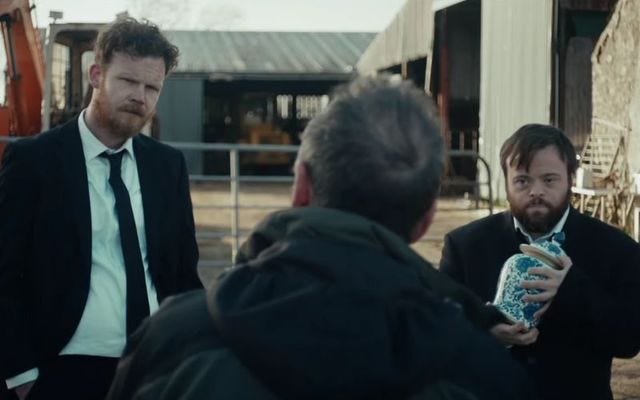

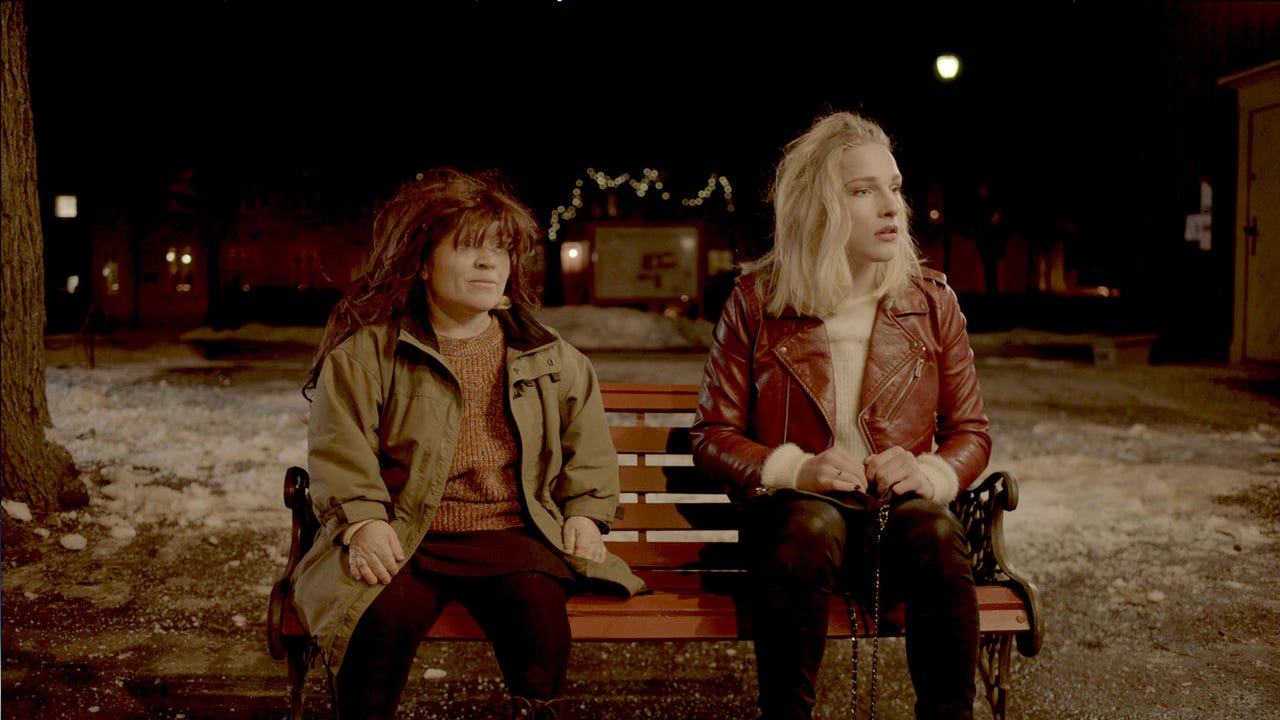
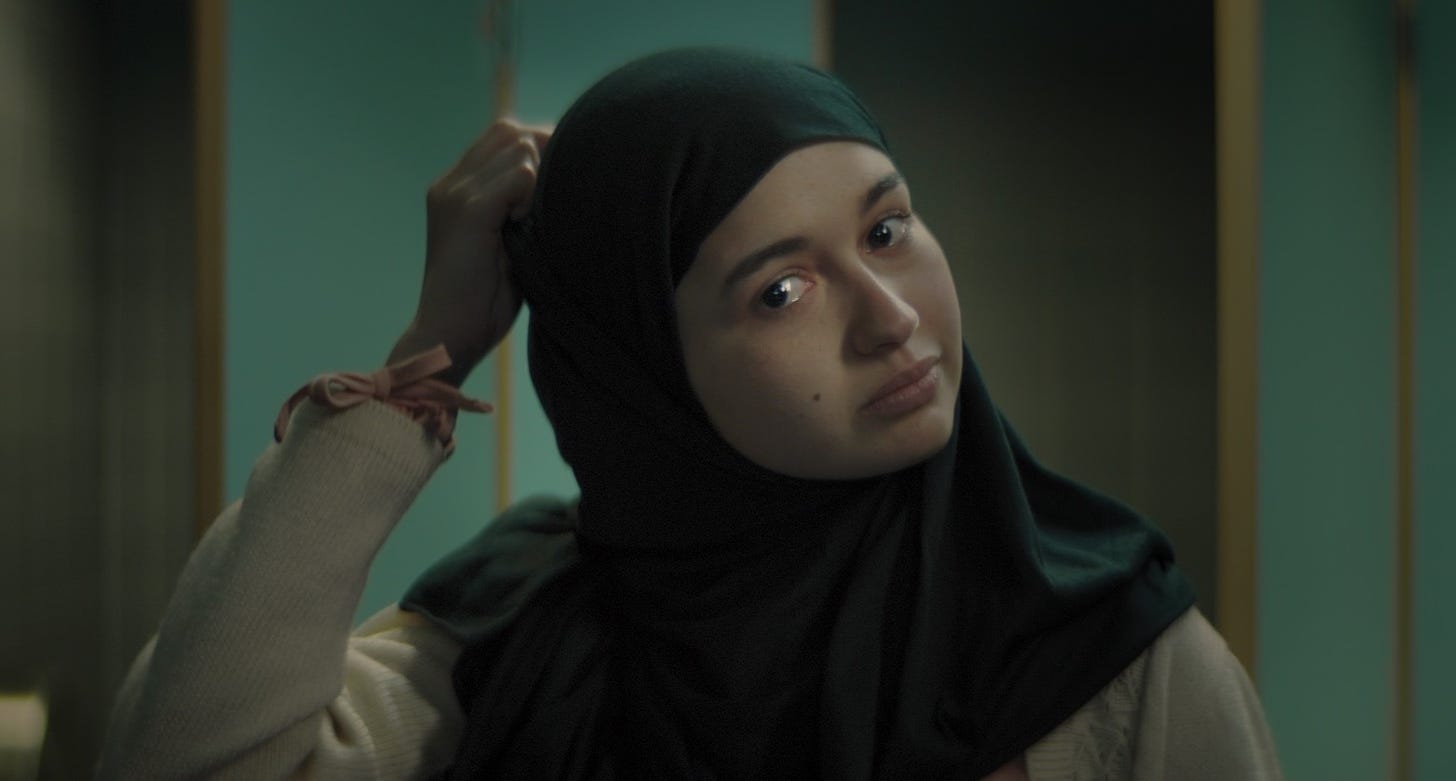
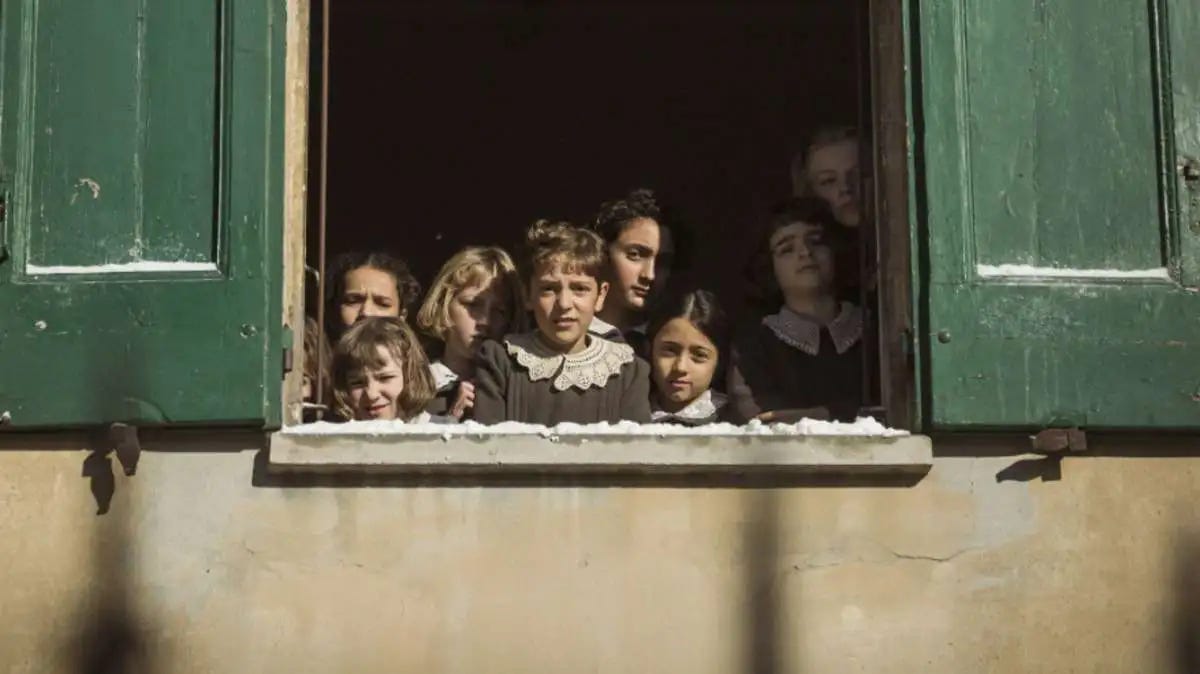


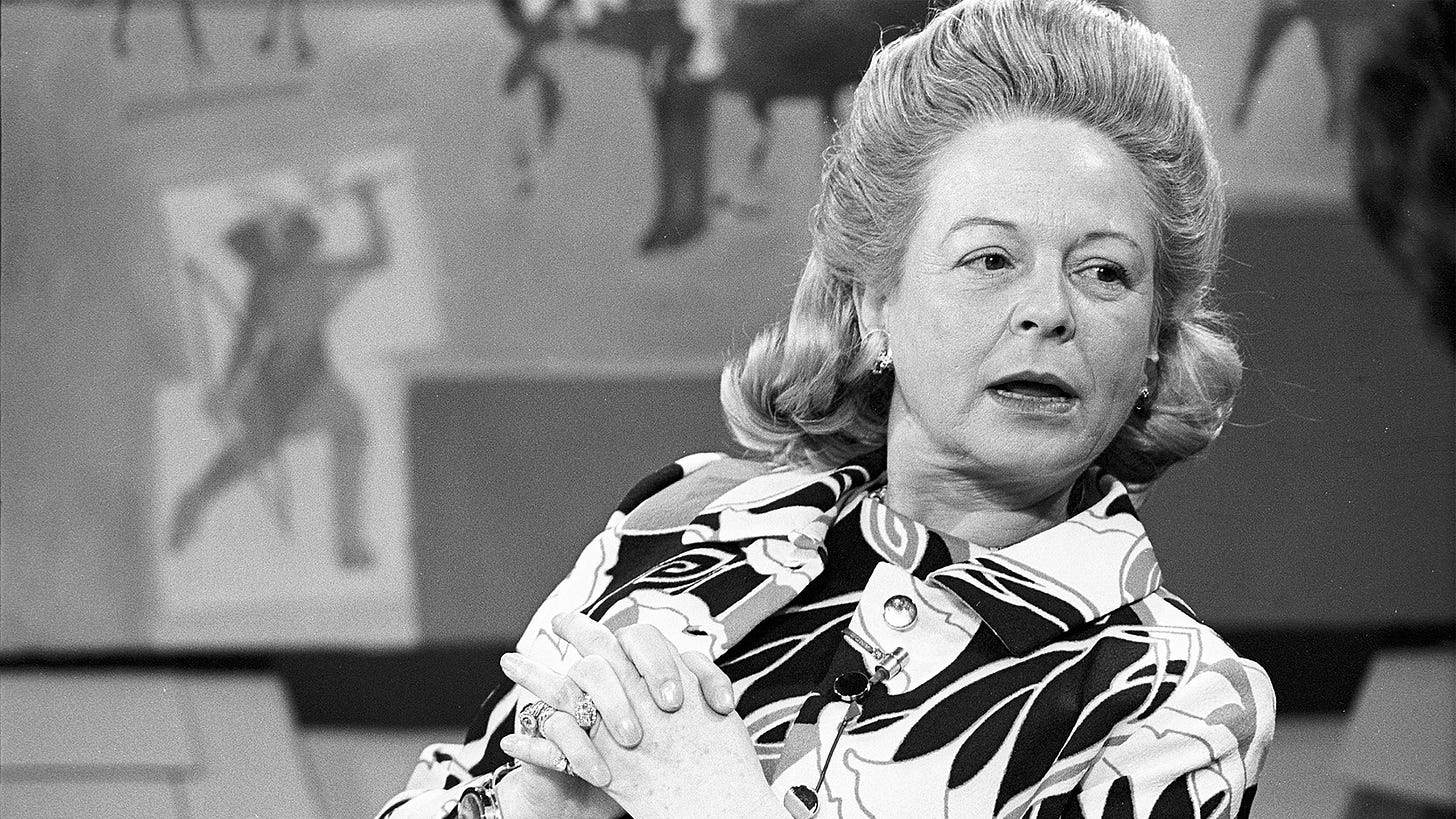
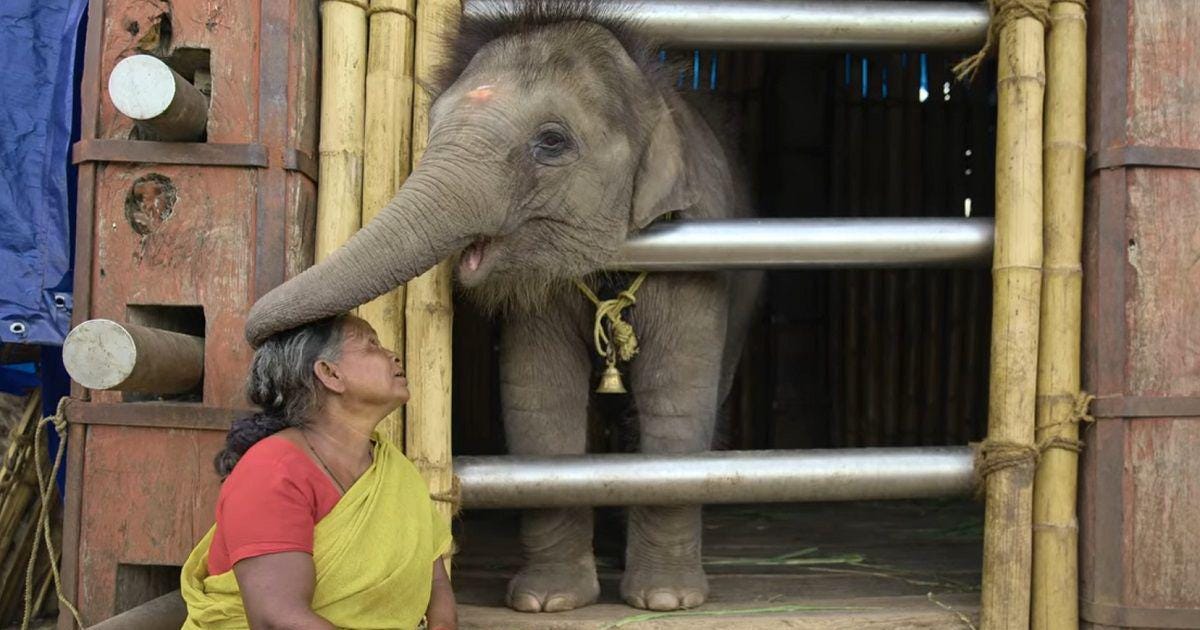
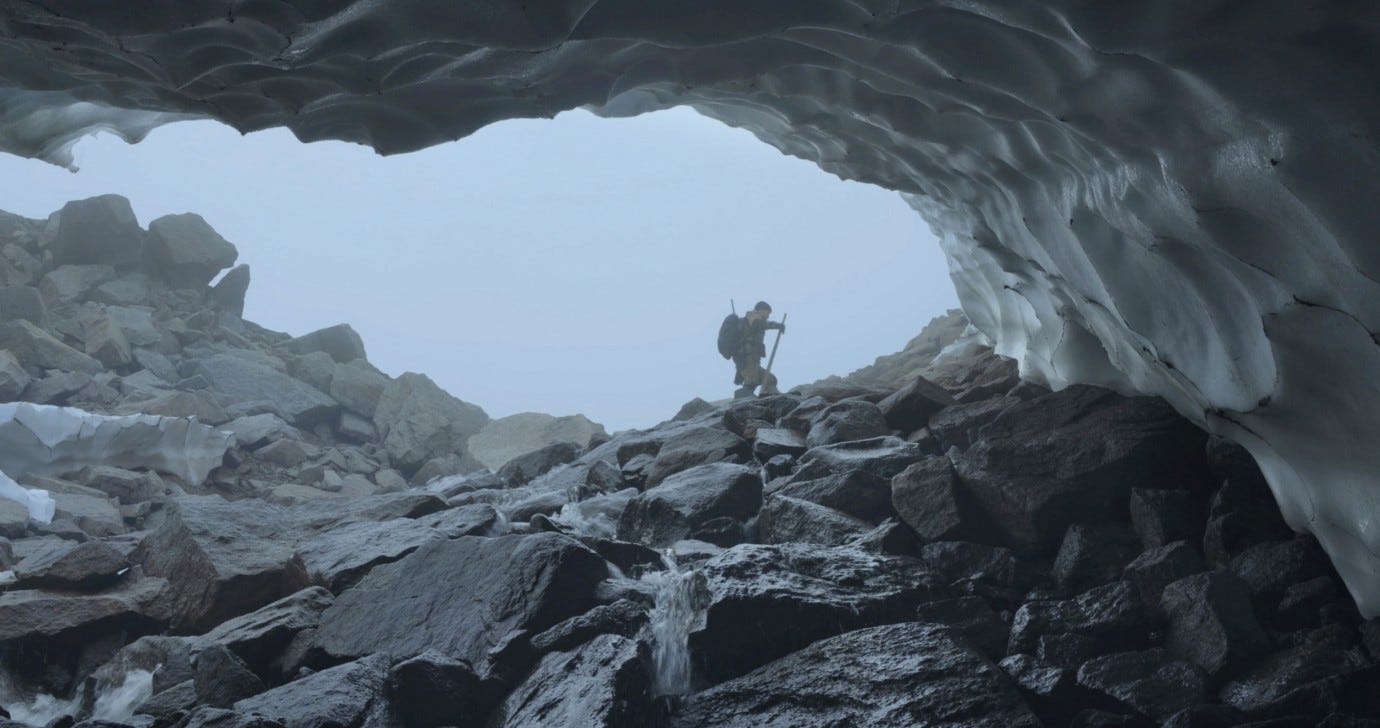


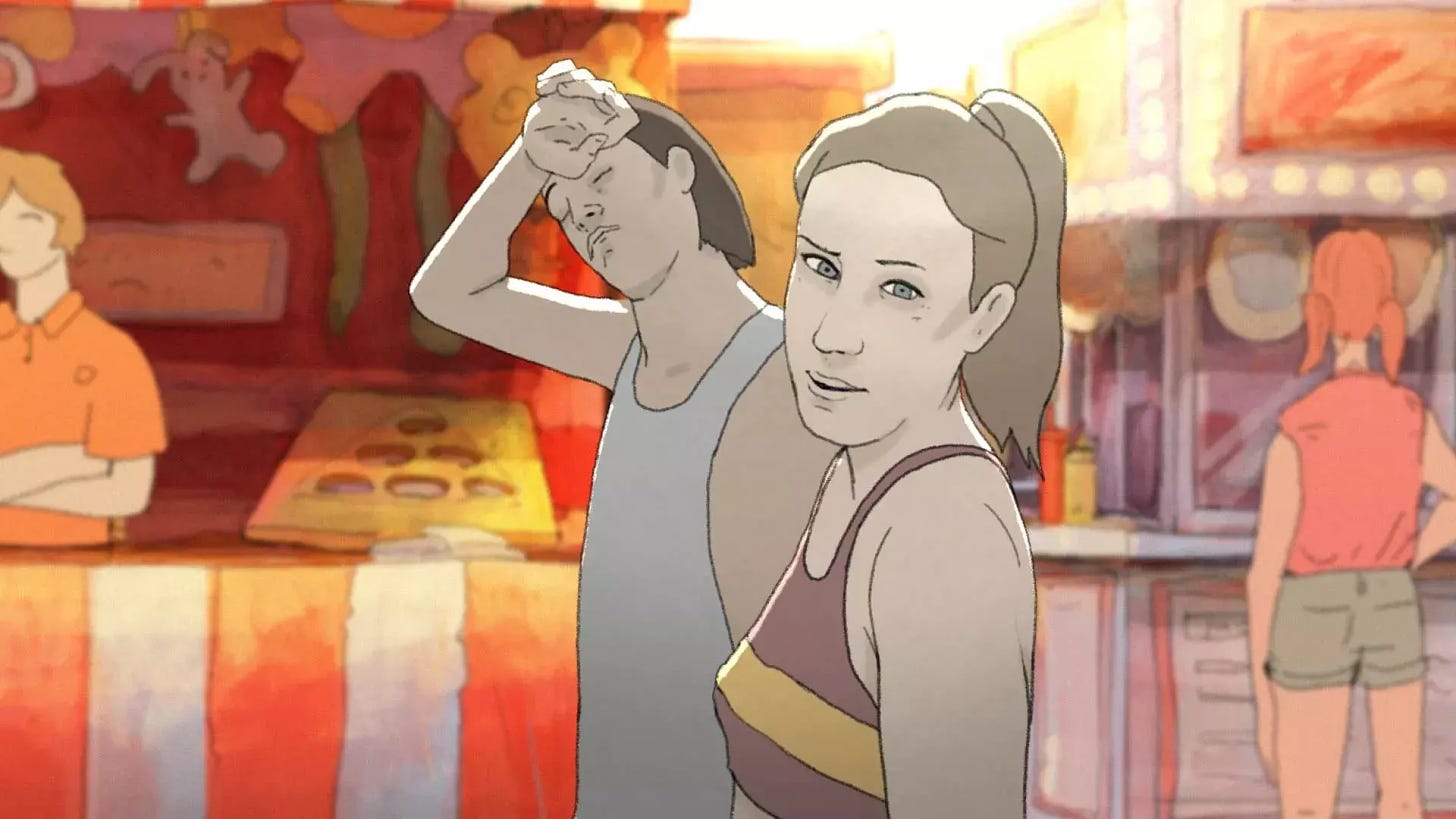
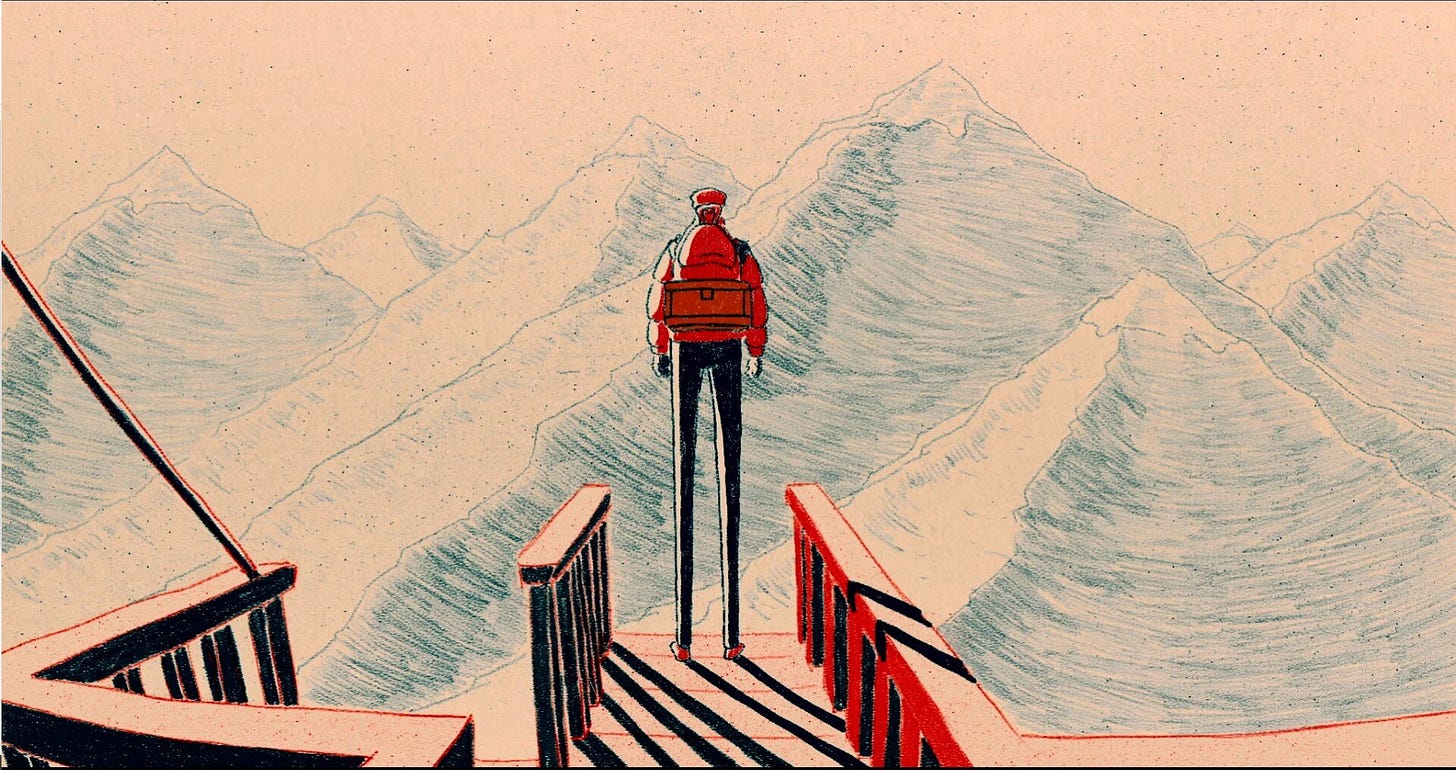

Honestly can't wait for which actor has to say "My Year of Dicks" during the Oscar ceremony when reading the list of nominees, absolutely worth these being given out on air just for that moment.
I go to the animated shorts every year in the theater -- kinda nice to be able to see a whole category in ~90 minutes, would recommend. This year felt weak, and The Boy, The Mole... was easily the worst of the bunch; you could practically hear the theater groan after hearing lines like "what's the bravest thing you've ever done? *Ask for help*". Thirty minutes of Hallmark sympathy card punchlines read by Idris Elba, Gabriel Byrne, and Tom Hollander -- sadly, it's total Oscars-bait. Ice Merchants and An Ostrich were excellent and are absolutely worth a watch.